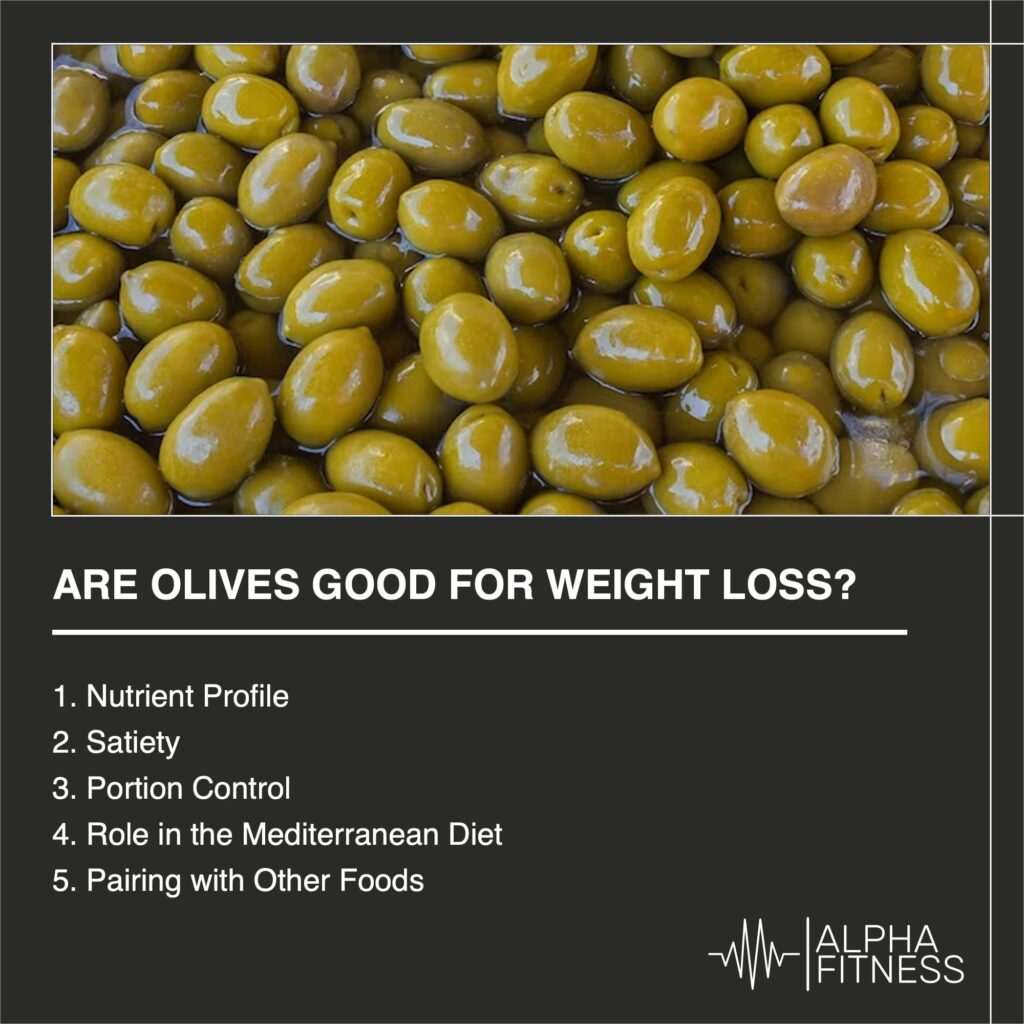
Olives are a healthy food that can be part of a balanced diet, but they are relatively high in calories and healthy fats. While olives alone may not directly lead to weight loss, they can be included in a weight loss diet when consumed in moderation and as part of a well-rounded meal plan. Here are some considerations regarding olives and weight loss:
1. Nutrient Profile:
Olives are a good source of monounsaturated fats, which are considered heart-healthy fats. They also contain dietary fiber, vitamins, and minerals, including vitamin E, iron, and copper.
2. Satiety:
The healthy fats in olives can contribute to a feeling of fullness and satiety when consumed as part of a meal. This may help reduce overall calorie intake by reducing the desire to snack between meals.
3. Portion Control:
Olives are calorie-dense, meaning they provide a relatively high number of calories for their size. It’s essential to be mindful of portion sizes, as excessive consumption of olives could contribute to a surplus of calories, which can hinder weight loss efforts.
4. Role in the Mediterranean Diet:
Olives are a staple in the Mediterranean diet, which is associated with various health benefits, including potential support for weight management. The Mediterranean diet focuses on a balance of whole grains, fruits, vegetables, lean proteins, and healthy fats, like those found in olives and olive oil.
5. Pairing with Other Foods:
Combining olives with vegetables, lean protein, and whole grains can create satisfying and nutritious meals. Such combinations can promote a feeling of fullness, which can be beneficial for weight loss.
6. Moderation:
While olives can be part of a weight loss diet, they should be consumed in moderation due to their calorie content. Be mindful of your overall daily calorie intake and balance it with physical activity.
7. Lifestyle Factors:
Weight loss is influenced by various factors, including diet, physical activity, and lifestyle. The types and amounts of foods you consume, along with your overall energy balance, are important for achieving and maintaining a healthy weight.
It’s important to understand that weight loss is a multifaceted process that depends on a combination of factors, including calorie intake, calorie expenditure through physical activity, and individual metabolism. While olives can be included in a balanced diet, relying solely on the inclusion of olives for weight loss is not a practical or effective approach. A holistic approach to weight management should consider the overall dietary pattern, portion control, regular physical activity, and other lifestyle factors. Consulting with a registered dietitian or healthcare provider can help you develop a personalized and effective weight loss plan.
Below is a list of useful links:




My brother suggested I might like this blog He was totally right This post actually made my day You can not imagine simply how much time I had spent for this info Thanks